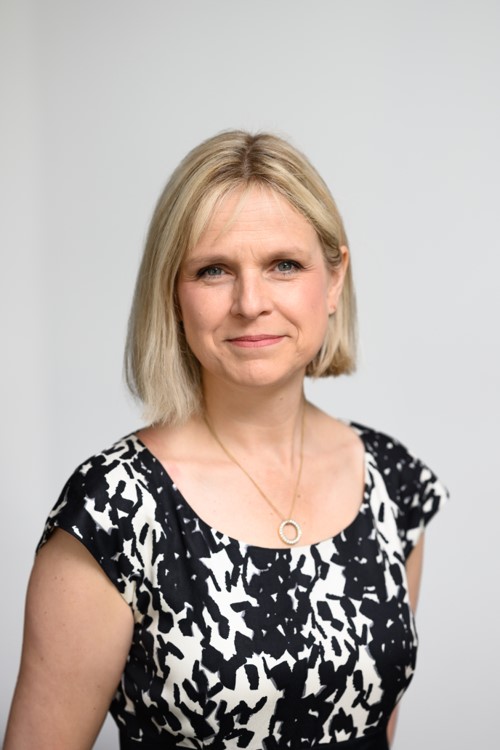Eating disorders can affect anyone. It is thought that between 1.25 and 4 million people in the UK have an eating disorder, from every gender, ethnicity, and age with some patients as young as six years old. In this blog for Eating Disorder Awareness Week (28 February-6 March), Charlotte Douglas and Sarah Houston, Innovation Advisors at Imperial College Health Partners, talk about the launch of a new service for young people with eating disorders and share their experiences and voices of the local programme champions in North West London.
Compared to before the pandemic, there has been a dramatic 69% increase in hospital admissions for eating disorders (EDs) in young people. Waiting times for eating disorder treatment have also increased. Over 30% of young people don’t receive the care they need within recommended targets.
Early intervention is key to preventing worsening of symptoms in eating disorders and a new programme has been designed to deliver rapid access to treatment for young people most likely to benefit from it.
The First episode Rapid Early intervention for Eating Disorders intervention, referred to as FREED, is part of the AHSN Network’s Early Intervention Eating Disorders national adoption and spread programme <link to PAGE NUMBER 29>. This means all 15 AHSNs across England are working to support their local systems to take on the intervention. Our AHSN, Imperial College Health Partners (ICHP) are doing just that by supporting the spread and adoption of FREED across the two North West London Mental Health Trusts – Central and North West London NHS Foundation Trust (CNWL) and West London NHS Trust (WLT).
Speeding up support and offering a person-centred service
The programme was developed by specialists at King’s College London (KCL) and South London and Maudsley NHS Trust (SLaM). It is an innovative, evidence-based early intervention programme, uniquely designed for 18-25 year olds. At its core, FREED is centred around a shortened time from referral to treatment. Service users will receive a call from their FREED Champion within two days of seeing their GP.
FREED is also person-centred. It adapts treatment plans to best suit the service user’s needs and uses multiple modes of communication to ensure constant accessibility. Family members are involved in treatment from the outset, which is known to improve outcomes.
“The therapy on offer is adapted to the young person ensuring family involvement, discussing what it feels like to move into adulthood, the effect of social media use and transition from school to university. From the initial engagement call to discharge the specialist needs of a young person’s are taken into account.” Olivia Rowe, FREED Champion at CNWL
The success rate of FREED is outstanding. A follow up study of FREED found that anorexia patients who used the FREED pathway had better weight outcomes, and needed less day or inpatient care than patients on standard treatment pathways Young people accessing FREED also recovered from anorexia faster, limiting the impact of the disease on their physical and mental development. By treating eating disorders faster, FREED supports young people to health now and reduces the effect of long-standing eating disorders in the future.
“Here at CNWL, the FREED programme has been hugely beneficial to our service. It has provided a pathway to not only ensure we are engaging young people sooner, but also to ensure that the treatment offered is considering young people’s needs. We are able to get in there quickly, taking advantage of a young person’s initial motivation to change.“ Olivia Rowe, FREED Champion at CNWL
Both of our sites in North West London have recruited a FREED champion, who works to promote FREED across their site. CNWL was an early adopter of FREED so ICHP is helping them to optimise their service. WLT are launching their service for 18-19 year olds this year with the support of ICHP.
Creating a sustainable service
Looking to the future of FREED, there is a national focus on supporting young adults with eating disorders as they transition to university. Making the change to becoming more independent, buying your own food and creating your own meal plans can be a stressful experience for some. In North West London, we hope to support our young adult population by developing resources with engagement from local universities to help make that transition just a little smoother. ICHP will also be supporting WLT in the next year as they seek to scale up FREED to a greater age range.
The AHSN Network in partnership with SLaM and KCL are leading on the national scaling of FREED. Across the network, 33 eating disorder services have now adopted FREED and a further 12 trusts anticipate launching their FREED service by summer 2022. Since the start of the AHSN Network national programme, 960 young people have accessed evidence-based treatment through FREED, on average 10-12 weeks faster than treatment as usual.
If you have been affected by anything in this blog, please: visit the FREED website www.freedfromed.co.uk for more information about the programme, speak to your General Practitioner (GP), and/or your usual healthcare provider.
Find out more about the AHSN Network Early Intervention Eating Disorders programme.
References
[1] Fukutomi, A., Austin, A., McClelland, J., Brown, A., Glennon, D., Mountford, V., Grant, N., Allen, K. and Schmidt, U., 2020. First episode rapid early intervention for eating disorders: A two‐year follow‐up. Early Intervention in Psychiatry, 14(1), pp.137-141.

The government has set out three shifts it wants to see happen: treatment to prevention, hospital to community, analogue to digital. HealthTech has a crucial role in supporting the delivery of all three. But using technology to help deliver these changes requires procuring the technology, and when all the noise is about there being no [...]

Dr Anish Bhuva, is the founder of Pace MRI, a Consultant Cardiologist at Barts Heart Centre and an Associate Professor at University College London. Tell us about the innovation. What does it do, how does it help, who does it help and why is it important? Pace-MRI is an award-winning digital tool that manages complex [...]

As we celebrate International Women’s Day, Anna King, Commercial Director at Health Innovation Network South London, identifies how FemTech is 'Accelerating Action' in UK healthcare and driving economic growth. In recent years, FemTech - the sector focused on women’s health and wellness technology - has gained significant traction globally. In the UK, this growing sector [...]









